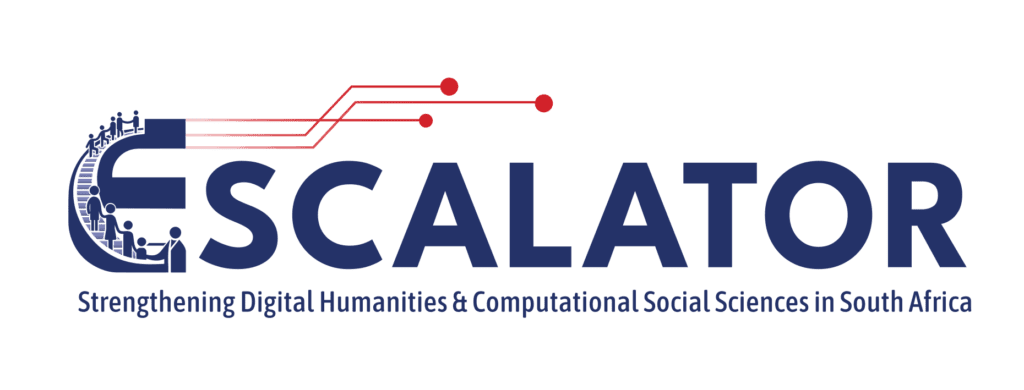
Towards an inclusive & active South African community of practice in Digital Humanities & Computational Social Science
About | Our Mission | Programme Components | DH-IGNITE | Digital Champions | Stakeholder Map | News & Events | Contact
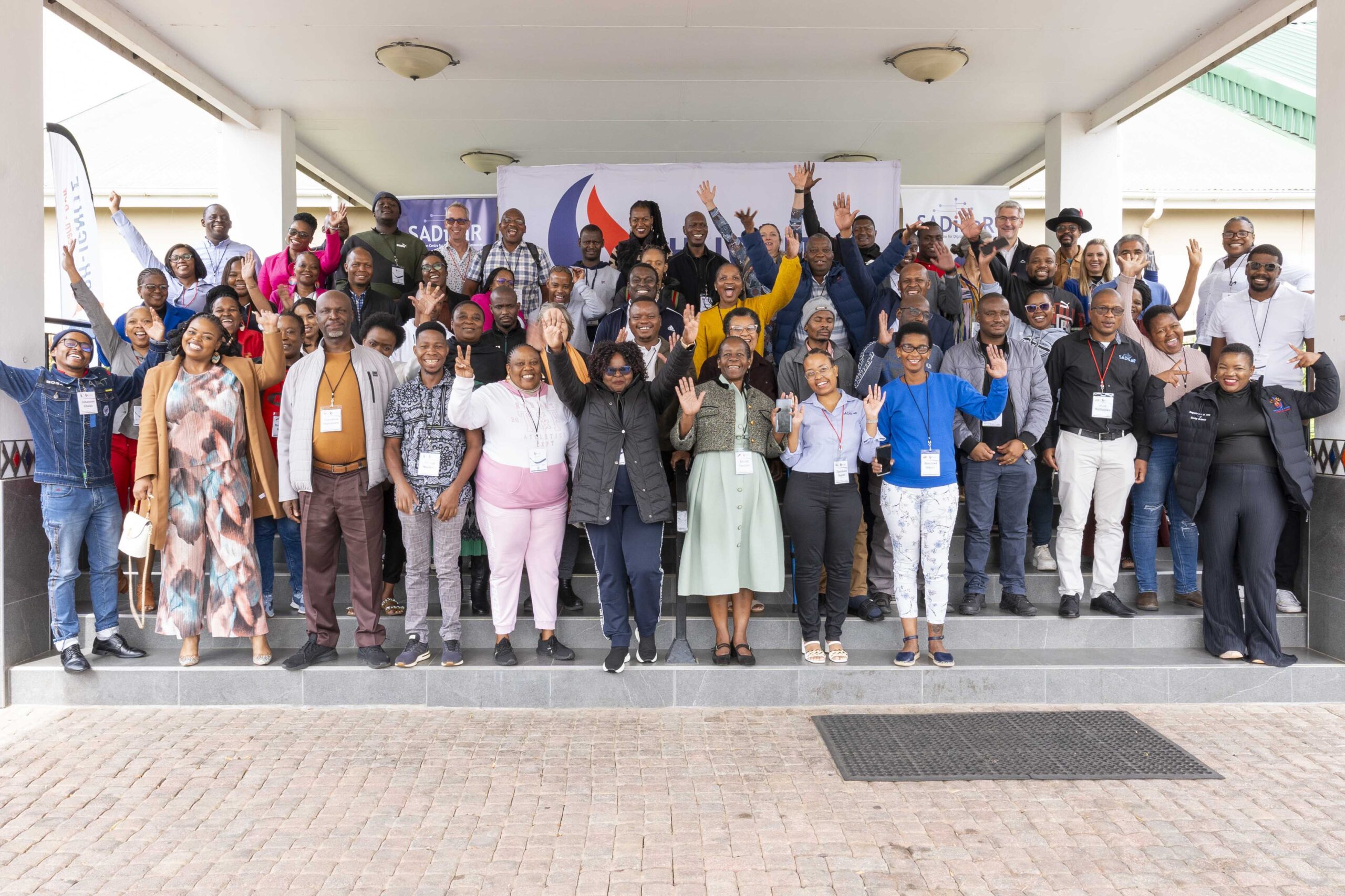
Building Digital Humanities Capacity Across South Africa
Join our growing community of researchers, students, and educators exploring the intersection of humanities, social sciences, and computational methods.
About ESCALATOR
ESCALATOR is SADiLaR’s flagship capacity development programme, designed to grow an inclusive and active South African community of practice in Digital Humanities and Computational Social Sciences.
Through strategic partnerships and tailored training initiatives, ESCALATOR provides researchers, students, and educators with the skills and resources needed to engage with digital and computational methods in humanities and social sciences research.
ESCALATOR moves beyond the limitations of ad hoc activities that often create initial excitement but leave participants feeling neglected and disempowered once the event concludes. Instead, ESCALATOR builds sustainable communities through ongoing engagement, mentorship, and structured pathways for skills development.
Programme Sustainability
The programme ensures community sustainability by:
- Developing digital champions and leaders across public universities and research centres
- Building lasting skills and confidence in using digital tools and methodologies
- Creating networks that support continued learning and collaboration
- Aligning with institutional, regional, national, and international digital capacity initiatives
Through this strategic approach, ESCALATOR is transforming how humanities and social sciences researchers engage with computational methods, fostering an inclusive community where digital scholarship can flourish across all of South Africa’s official languages.
Our Mission
ESCALATOR enables the creation of computational communities of practice in the Humanities and Social Sciences across South Africa through a coordinated, sustainable approach that goes beyond traditional training models.
Our Mission Encompasses:
- Providing structured, accessible pathways for skills development that meet participants where they are
- Building bridges between disciplines, institutions, and technological expertise
- Supporting the development of computational capacity for research involving African languages
- Creating an ecosystem where digital scholarship can thrive through peer learning and collaboration
- Ensuring digital humanities knowledge and resources remain accessible to researchers at all institutions
Programme Components
ESCALATOR operates through several key initiatives designed to build a sustainable digital humanities community across South Africa:
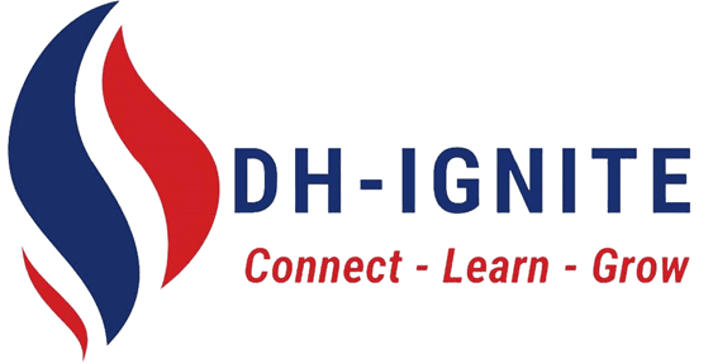
DH-IGNITE Regional Events
Catalysts for regional community development, bringing together researchers, students, and practitioners to explore Digital Humanities.

Digital Champions Initiative
A multi-track membership programme providing structured support for participants at various stages of their computational journey.

Stakeholder Map
An interactive visualisation of the growing ecosystem of Digital Humanities and Computational and Social Sciences across South Africa.
DH-IGNITE Regional Events
DH-IGNITE events are catalysts for regional community development, bringing together researchers, students, and practitioners from across South Africa to explore the possibilities of Digital Humanities and Computational Social Sciences.
Programme Design
Through these events, we aim to bring together people who are interested in learning more about Digital Humanities (DH) and Computational Social Sciences (CSS), as well as those who are already active in these fields.
DH-IGNITE takes a unique approach that includes elements of traditional academic conferences, conferences, workshops, and networking events. The DH-IGNITE programme is organized around three key principles: Connect – Learn – Grow.
The programme is designed to:
- Showcase innovative digital methods and tools tailored to humanities research questions
- Create opportunities to connect with local and international digital humanities practitioners
- Provide hands-on exploration of digital resources and computational approaches
- Establish foundations for ongoing regional communities of practice
- Offer pathways into other ESCALATOR programme components
Our regional approach ensures that digital humanities resources and knowledge reach institutions across South Africa, addressing historical imbalances in access to computational resources.
Event Components
Connect
Icebreaker activities and networking sessions ensure participants can connect with people from other institutions and create a relaxed atmosphere for knowledge sharing.
Grow
Participants develop action plans for continued engagement and growth beyond the event through community platforms like the DHCSSza Slack workspace.
Learn
Sessions on data in HSS, training opportunities, interdisciplinary research, and lightning talks about research projects provide participants with concrete examples and resources.
Past DH-IGNITE Events
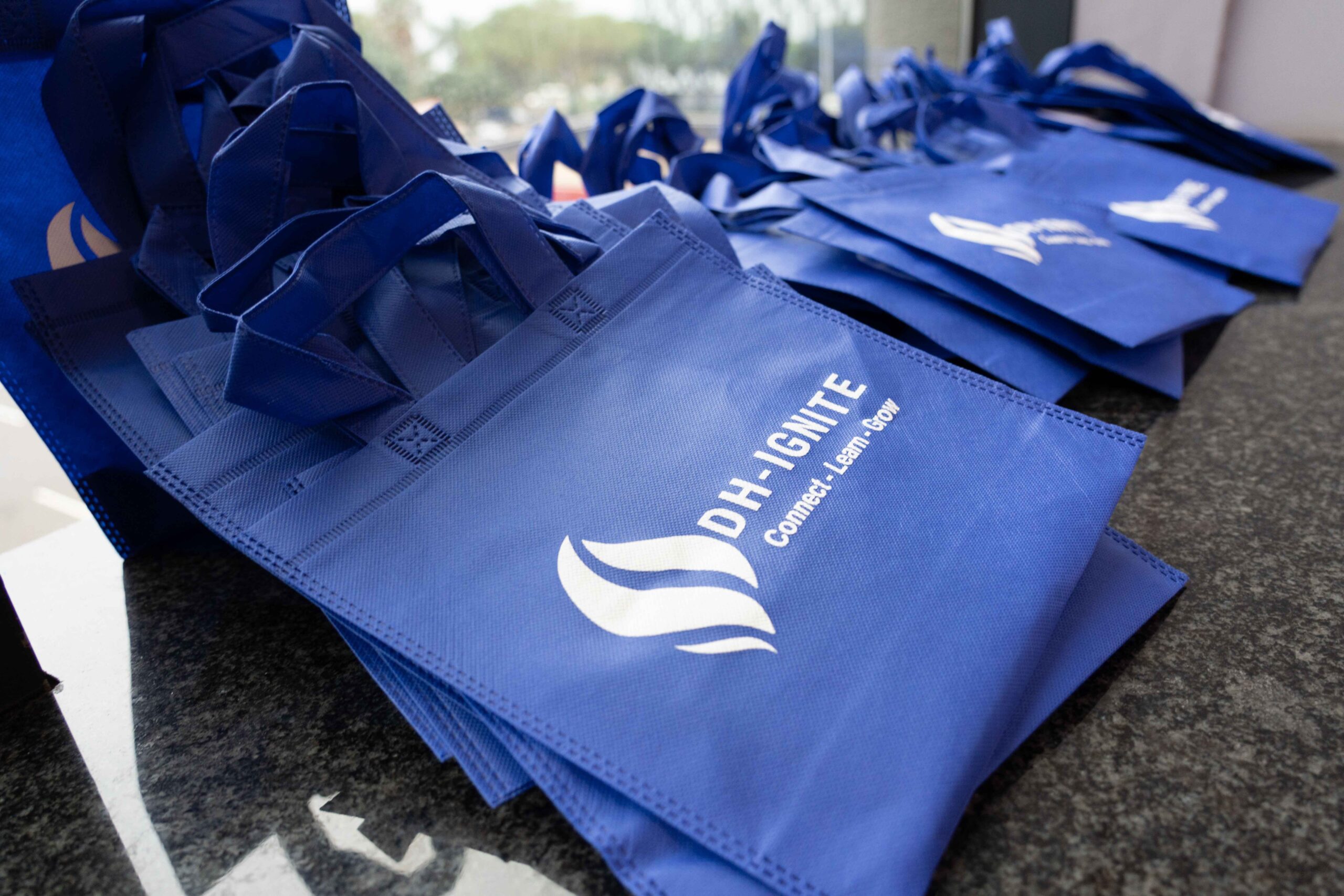
DH-IGNITE KwaZulu-Natal
October 18-19, 2022 Umhlanga
This inaugural event brought together researchers from the University of Zululand (UNIZULU), the University of Kwa-Zulu Natal (UKZN), and the Durban University of Technology (DUT) to explore digital humanities methods and applications.
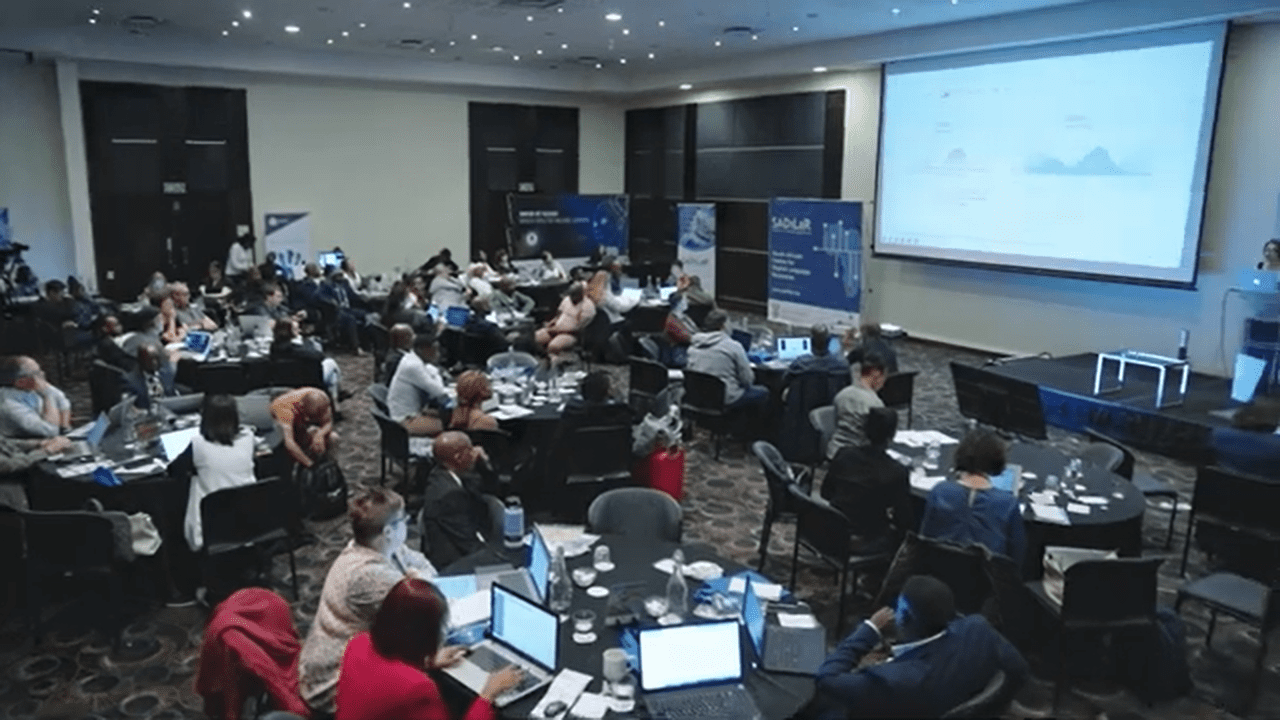
DH-IGNITE Central Region August 23-25, 2023 – Johannesburg
Our largest event, bringing together participants from Tshwane University of Technology (TUT), Vaal University of Technology (VUT), Central University of Technology (CUT), University of Free State (UFS), Sol Plaatje University (SPU), North West University (NWU), Sefako Makgatho Health Sciences University (SMU), University of Pretoria (UP), University of Johannesburg (UJ), University of the Witwatersrand (WITS), Human Sciences Research Council (HSRC), Council for Scientific and Industrial Research (CSIR), and University of South Africa (UNISA).
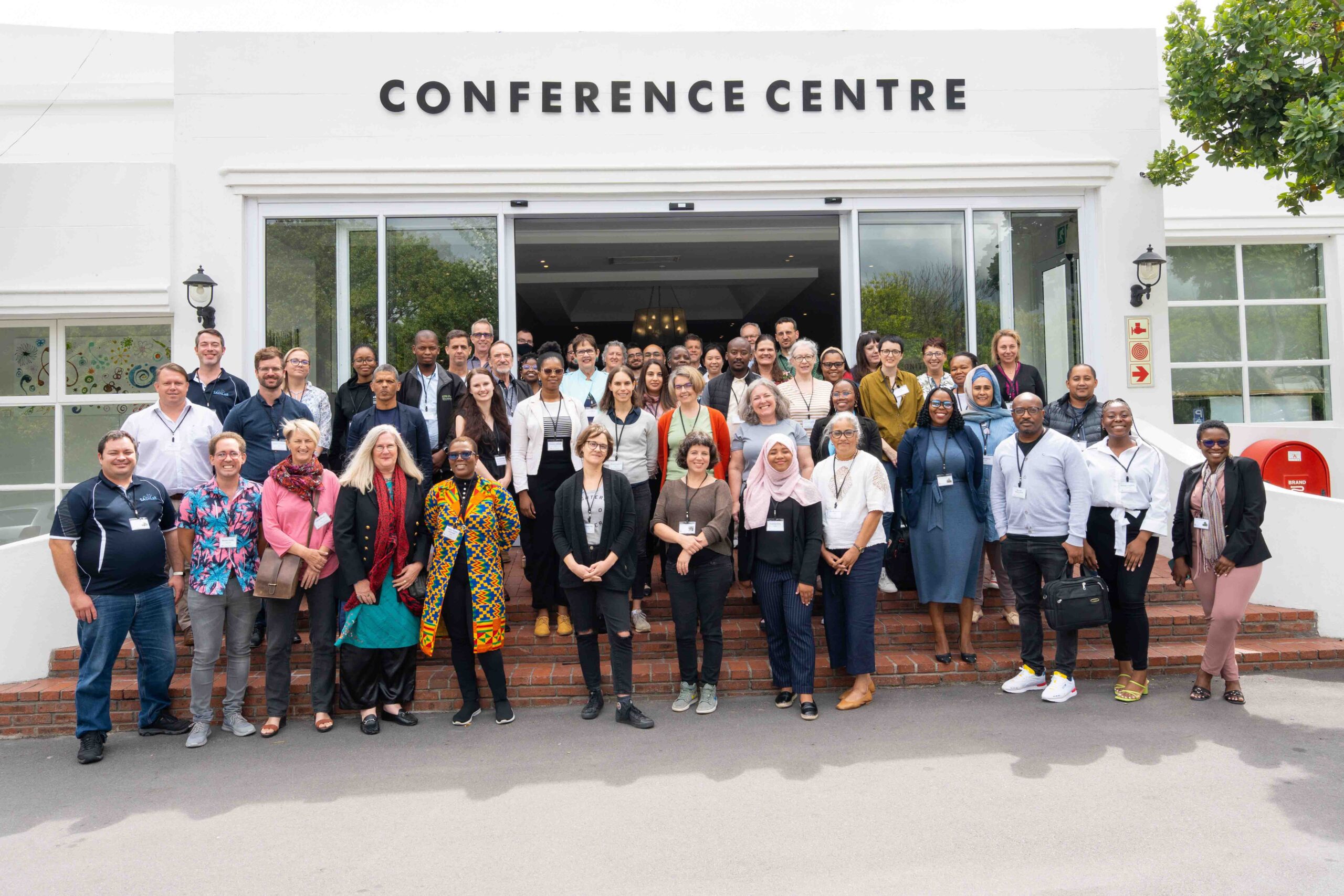
DH-IGNITE Western Cape
March 8-10, 2023 Somerset West
Creating connections between the University of Western Cape (UWC), Cape Peninsula University of Technology (CPUT), University of Cape Town (UCT), and the University of Stellenbosch (US) to foster digital humanities collaboration in the Western Cape region.
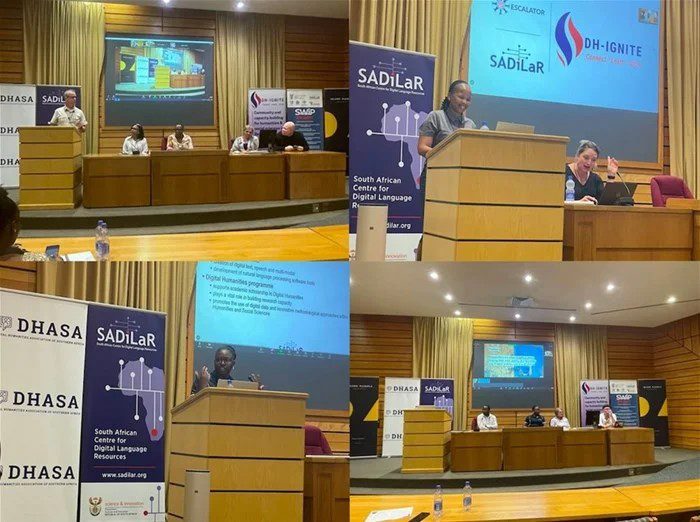
DH-IGNITE Eastern Cape
November 28, 2023 Gqeberha
Co-located with the annual DHASA conference, this event brought together researchers from WSU, UFH, RU, and NMU.

DH-IGNITE Northern Region
April 15-17, 2024 Polokwane
Our most recent event focused on institutions in the northern region, including UL, UNIVEN, and UMP.
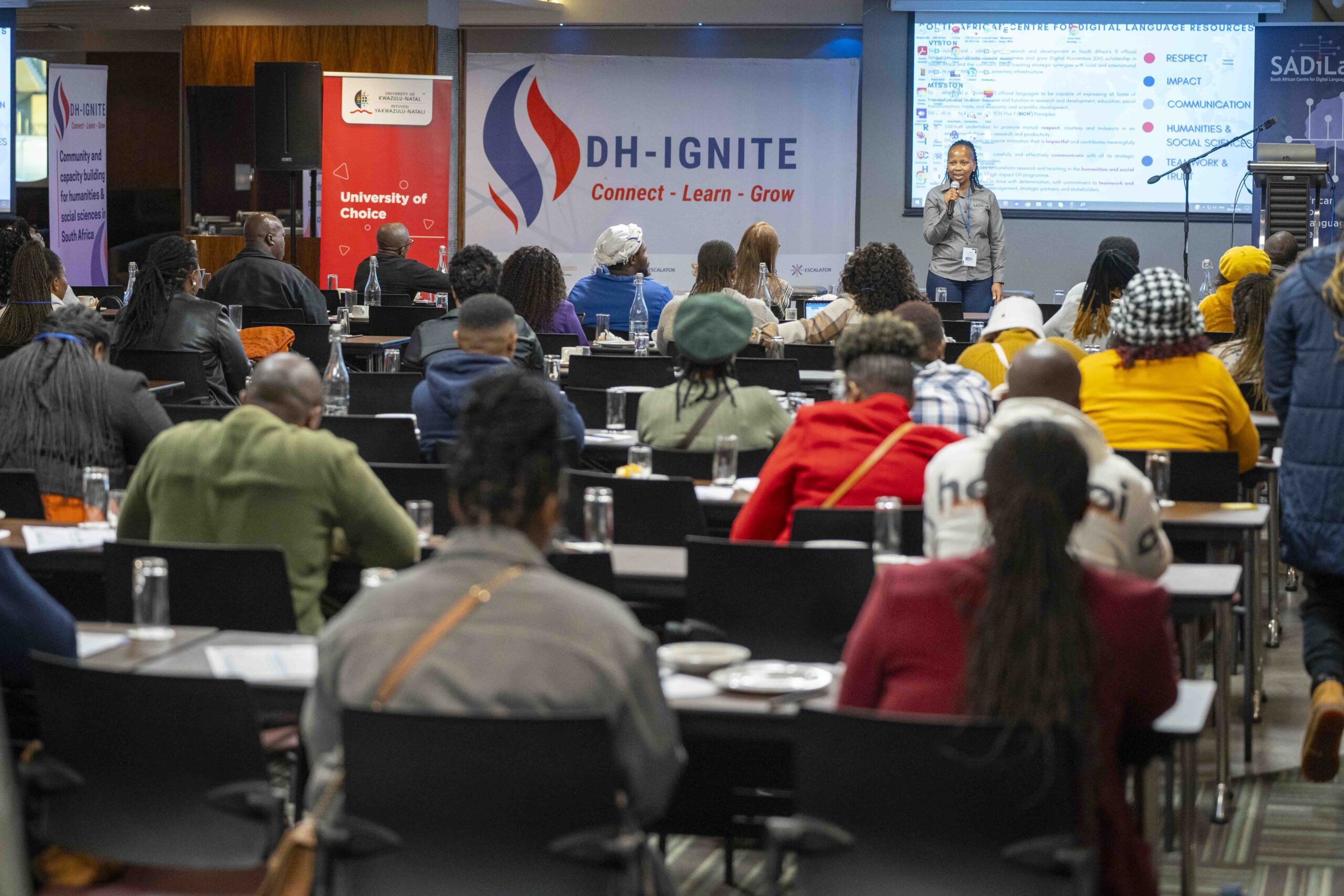
Mini-DH-IGNITE Pre-Conference
July 8, 2024 Umhlanga
A special pre-conference event at the ALASA 2024 Conference featuring presentations on SADiLaR’s role in DH, the ESCALATOR initiative, and a ParaConc workshop.
Impact
Between October 2022 and April 2024, our five DH-IGNITE events reached a total of 397 participants, presenters, and exhibitors from 46 organizations. The events have successfully established regional networks of digital humanities practitioners and created pathways for ongoing collaboration.
Participant feedback highlights the success of these events in:
- Engaging participants in discussions about digital humanities and its offerings
- Introducing different tracks offered by the ESCALATOR programme
- Creating networking opportunities beneficial for students and future engagements
- Enabling understanding of how to engage with SADiLaR and ask the right questions about digital scholarship
- Highlighting the importance of balancing digital methodologies with traditional humanities approaches
Through these events, we’ve also collected valuable data on the challenges faced by humanities and social sciences researchers in adopting digital methods, with the most significant barriers being knowledge gaps, skills gaps, access to data, financial resources, and training opportunities.
Future Events
Stay tuned for announcements about upcoming DH-IGNITE events. Sign up for our newsletter or join the DHCSSza Slack workspace to be notified of future opportunities.
Digital Champions Initiative
The Digital Champions Initiative forms the backbone of ESCALATOR’s sustainable community-building strategy. This multi-track membership programme recognizes that digital scholarship journeys take many paths and provides structured support for participants at various stages of their computational journey.
What is the Digital Champions Initiative?
The Digital Champions Initiative is a membership-based programme designed for students, researchers, educators, and support staff based at institutions across South Africa. The initiative creates pathways for skills development, mentorship, and collaboration that extend beyond single events or workshops, fostering sustained engagement with digital humanities and computational social sciences practices.
As members of this initiative, Champions receive:
- Targeted training opportunities aligned with their specific track
- Access to mentorship from experienced practitioners
- Opportunities to collaborate across disciplinary boundaries
- Resources for implementing digital approaches in their own contexts
- A nationwide network of peers facing similar challenges and opportunities
Our Specialised Tracks
Explorer Track
For researchers and students new to digital scholarship who want to learn about foundational concepts and understand what they could gain from digital approaches.
Embarker Track
For scholars who already have some idea of digital scholarship but want to learn more and start applying computational methods to their own work and research.
Enhancer Track
Specifically designed for those more experienced in digital and computational research who want to learn specific skills to support their digital humanities or computational social sciences research projects.
Educator Track
Targeted at scholars interested in developing contextualized open educational resources for digital humanities or computational social sciences, transforming how these skills are taught in South African institutions.
Enabler Track
Offers specialised support for librarians, IT specialists, and others who play a support role in faculties or institutions, helping them develop the skills to assist others in their digital humanities journey.
Empower Track
Connects women in humanities and social sciences to existing communities that support women in technology, addressing gender imbalances in computational fields.
Executive Track
Brings change from within HSS Faculties by providing a space where humanities faculty management and lecturers can share progress, challenges, and opportunities related to updating curricula to include digital and computational learning opportunities.
Exchanger Track
Creates a gateway to collaborations across disciplines, providing opportunities for humanities and social sciences researchers to connect with those from traditionally more computational fields.
Engager Track
Shares the benefits and awareness of DH & CSS with the broader public, enhancing awareness of digital and computational artifacts and opportunities in humanities and social sciences.
Enthusiast Track
Empowers ESCALATOR community members who are keen to share opportunities and resources within their networks and at their institutions, amplifying the reach of digital humanities knowledge.
Join the Digital Champions Initiative
Membership in the Digital Champions Initiative is open to students, researchers, and staff affiliated with South African institutions. You can join as a Participant, Contributor, Collaborator, Learner, Instructor, Mentor, or Mentee.
Stakeholder Map
Our interactive stakeholder map visualizes the growing ecosystem of Digital Humanities and Computational Social Sciences across South Africa, serving as both a research tool and community-building resource.
What is the Stakeholder Map?
The stakeholder map project collects and shares data on Digital Humanities (DH), Computational Social Sciences (CSS), and related activities and initiatives throughout South Africa. This comprehensive mapping includes:
- Projects and research initiatives
- Researchers and practitioners
- Publications and scholarly outputs
- Datasets and digital collections
- Training courses and educational programmes
- Learning materials and resources
- Tools and software
- Archives and repositories
- Other digital humanities activities
The map serves multiple purposes, providing deeper insight into the breadth of activities in this area, facilitating enhanced networking and collaboration, and supporting the optimal use of resources across institutions.
How the Map Serves the Community
The stakeholder map is designed to:
- Make visible the often-hidden networks of digital humanities practitioners
- Connect researchers working on similar topics or methodologies
- Help potential students identify undergraduate and postgraduate training programmes
- Highlight institutional resources and centres of expertise
- Identify potential collaborators and mentors
- Demonstrate the growth of the community over time
- Reveal gaps and opportunities to funders and institutions
Contribute to the Map
The map is continually updated through community contributions. You can add your work to the stakeholder map in two ways:
- Submit your projects, courses, tools, or other resources through our online form
- Add research articles to our open collection in Zotero to facilitate easy access to publications from the South African community
Your contributions help make the digital humanities landscape in South Africa more visible and connected, benefiting the entire community.
Events
This calendar offers a one-stop-shop for events relevant to researchers, students, and professional staff at South African research institutions in Humanities and Social Sciences. We include both ESCALATOR events and other valuable opportunities in the field.
The ESCALATOR team does not claim to have any stake in events listed as hosted by other organisations.
Contact Us
Email: escalator@sadilar.org
Join our Slack & Facebook community for regular updates and discussions
